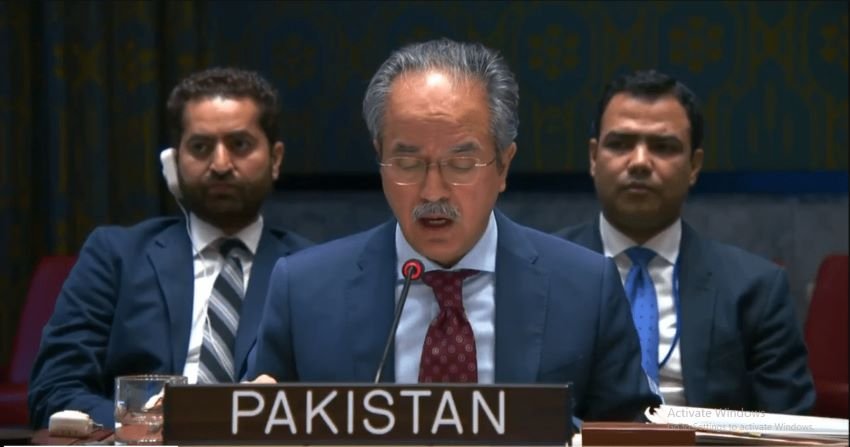United Nations (TDI): Pakistan has called for addressing the root causes of terrorism as a crucial measure in effectively combating the menace at a meeting held to consider the reconfiguration of the United Nations’ counterterrorism architecture.
“The UN’s counterterrorism discourse must go beyond reactive measures. We must also confront the core causes, unresolved disputes, occupation, foreign intervention, injustice, and the abuse of international law in the name of counterterrorism,” Pakistan’s Permanent Representative to the UN Ambassador Ahmad said during the meeting.
The consultations are part of the broader UN80 Initiative, launched by Secretary-General António Guterres in March, which aims to modernize the UN’s systems and reaffirm its global relevance ahead of its 80th anniversary.
Ambassador Ahmad emphasized the need to distinguish clearly between acts of terrorism and legitimate struggles for self-determination against foreign occupation. “Conflating these only serves to deepen grievances and prolong violence,” he said.
He also called for reforms within the UN Office of Counter-Terrorism (UNOCT), including embedding human rights safeguards into all operations and ensuring that counterterrorism tools are not misused by member states. “If we continue to avoid these conversations, our counterterrorism efforts will remain incomplete,” he warned.
Read More: Pakistan, India Trade Barbs at UN Over Kashmir
Another critical concern raised by the Pakistani envoy was the growing stigmatization of Islam and Muslims, which he described as a dangerous trend in global counterterrorism narratives. He criticized the absence of non-Muslim individuals or groups from the UN Security Council’s terrorism designations.
“We must confront the rising tide of right-wing extremism and fascism. Acts of terrorism by non-Muslims are too often treated merely as violent crimes, rather than as terrorism,” he said. “This double standard must end.”
Read More: Pakistan Pushes Diplomacy on Iran at UN
Ambassador Ahmad also pushed for a balanced implementation of the UN Global Counter-Terrorism Strategy (GCTS) and reforms to the UN’s sanctions regimes to account for new and evolving threats.
He reminded delegates of the heavy toll terrorism has taken on Pakistan, which has lost over 80,000 lives and suffered billions of dollars in economic losses over the past two decades. “We speak not just from principle, but from painful experience,” he concluded.
Farkhund Yousafzai is an Associate Editor at The Diplomatic Insight.



